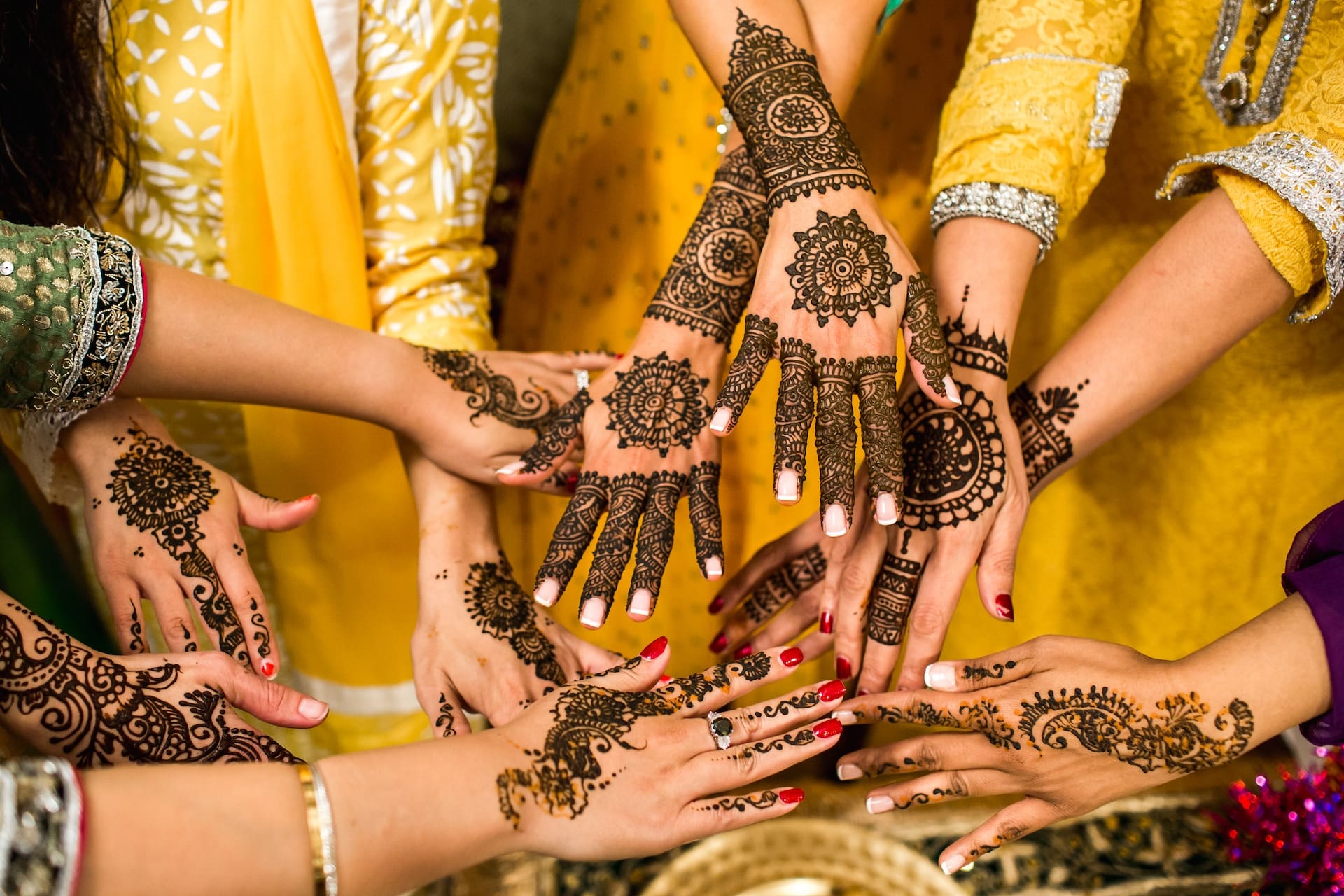Introduction
In the pursuit of happiness and contentment, the keyword that often surfaces is ‘ritual.’ Rituals, traditionally known for their importance in ceremonies and spiritual contexts, have found a new resonance in the sphere of personal growth. By infusing our daily routines with rituals that hold personal significance, we can harness the power of transformation. This article will provide an enlightening exploration of the concept of daily rituals, demonstrating how they can help us find meaning and foster positive changes in our lives.
Understanding the Power of Daily Rituals
What Are Daily Rituals?
At their core, daily rituals are activities performed consistently and with a sense of intention. They may range from simple rituals, like going for a morning walk or journaling before bedtime, to more elaborate practices, such as a yoga sequence or a mindfulness meditation. What separates a daily routine from a ritual is the mindful attention and intent placed on the act. In the quest for personal growth and transformation, such daily rituals play a pivotal role.
The Psychology Behind Rituals
The emotional and mental benefits of daily rituals extend far beyond the visible. Rituals can also bring a sense of order and control in a world that often seems chaotic and unpredictable. The repetition of familiar actions provides a comforting sense of structure, reducing feelings of anxiety and fostering a sense of wellbeing. By incorporating specific actions into our routines, we bring attention and focus to our desired outcomes.
Moreover, rituals can contribute to finding meaning naturally in life. Anthropologist Dimitris Xygalatas, in his study in 2022, found that the rituals we perform imbue our lives with a deeper sense of purpose and connection. They facilitate our journey toward understanding and accepting life’s intricacies, weaving a pattern of intention and thoughtfulness into our daily existence.

Identifying Your Meaningful Rituals
Personal Reflection: The First Step Towards Meaningful Rituals
Identifying your personal rituals starts with self-awareness. Ask yourself, “What activities nourish my soul?” or “What actions enrich my daily life?” For some, it might be the simple act of enjoying a cup of tea in silence every morning. For others, it could be a spiritual practice, like meditating or chanting. Set an intention to explore these rituals, notice how they affect you both physically and mentally, and embrace them as an integral part of your life.
Aligning Rituals with Personal Values
In addition to personal reflection, understanding your core values is critical in creating meaningful rituals. These values act as a compass, guiding your actions and choices. By aligning your rituals with your values, you enhance their potency and make them a true source of power for life transformation.
For example, if one of your core values is health, your daily ritual might involve a vigorous workout or a nutritious homemade meal. Or if creativity fuels your spirit, your ritual may include time set aside for painting, writing, or any other creative endeavor.
3 Daily Rituals that Can Transform Your Life
By incorporating rituals into different parts of the day, we can cultivate a holistic sense of well-being. Here are a few examples:
Morning Rituals
Begin your day with positivity by practicing a morning ritual. It can be as simple as setting an intention for the day, practicing yoga, or even just enjoying a cup of coffee while reading an inspiring book. A morning ritual sets the tone for the day and helps you connect with your inner self.
Step 1: As you wake up, sit quietly in a comfortable place. Take a few deep breaths to center your mind and body.
Step 2: Choose a positive affirmation for the day, something like “I am capable and resilient” or “I choose happiness and positivity today.”
Step 3: Repeat this affirmation to yourself silently or out loud, really feeling its meaning resonate within you.
Step 4: Open your journal and jot down three things you’re grateful for. They can be as simple as a good night’s sleep, the smell of morning coffee, or a sunny day ahead.
This ritual might seem simple, but it can set a positive tone for the entire day, reminding you of your strength and the many blessings in your life.
Midday Rituals
Maintain focus and productivity with a midday ritual. This could be a short walk, a healthy lunch, or a few minutes of deep breathing. Such rituals can help rejuvenate your energy and maintain your focus for the second half of the day.
Step 1: Choose a time in the middle of your day, perhaps during lunch or a work break.
Step 2: Put away all electronic devices and eliminate possible distractions. This is a time to disconnect from the digital world.
Step 3: Do something that relaxes you – it could be a short walk, reading a few pages from an inspiring book, or just sitting and savoring your lunch.
Step 4: As you do this, practice mindfulness. Pay attention to your surroundings, the tastes, the sounds, the sensations. Be present in the moment.
This ritual can help break the monotony of the day, reduce stress, and increase productivity.
Evening Rituals
Winding down at the end of the day is crucial. Evening rituals, like journaling, reading a bedtime story, or practicing a mindfulness exercise before you fall asleep, promote better sleep and preparation for the next day.
Step 1: About an hour before you intend to sleep, dim the lights to signal to your body that it’s time to wind down.
Step 2: Reflect on your day. Consider what went well, any challenges you faced, and how you can improve or handle things differently.
Step 3: Jot down your reflections in a journal, adding any insights or thoughts that come up.
Step 4: End with a relaxing activity, such as reading a bedtime story or doing some light stretching.
This evening ritual encourages self-reflection and learning, while also preparing your body and mind for restful sleep.
Implementing these daily rituals can create a structure in your routine that cultivates positivity, mindfulness, and growth. Remember, it’s not about the complexity of the ritual, but the consistency and intention behind it.
Integrating Daily Rituals into Your Routine
Start Small: The Key to Lasting Change
When it comes to integrating rituals into your routine, start small. The most lasting and impactful changes often come from small, consistent actions. Choose something manageable yet meaningful, like going for a short walk every morning or writing down three things you’re grateful for each night.
Consistency in Daily Rituals
Consistency is the heart of any ritual. The repetitive nature of rituals makes them powerful tools for transformation. But how do we ensure consistency? It begins with understanding and accepting that the act of performing rituals should not feel like a compulsory task, but rather an enriching part of our way of living.
Incorporating a ritualistic approach into your day requires patience and perseverance. To stay motivated, remind yourself of the positive effects of these rituals and the purpose they serve in your life. Use rituals as a way to cultivate mindfulness and presence, fostering a deeper connection with yourself and your surroundings.
Product Details to Support Your Daily Rituals
Every ritual becomes a ritual in its true sense when performed with full awareness and supplemented by the right tools. Products that support your rituals play a pivotal role in enhancing their effect and making them a more enriching experience. Here are some product details that you should consider when choosing tools for your daily rituals:
Meditation Cushions: These provide comfort and aid in maintaining proper posture during meditation, making the practice more enjoyable and effective.
Aromatherapy Oils: Essential oils with calming scents like lavender, chamomile, or jasmine can facilitate a serene atmosphere for your ritual space.
Journal: A journal to record your thoughts and feelings can be a helpful tool in reflection-based rituals, providing a tangible record of your personal growth journey.
Herbal Teas: Herbal teas not only have numerous health benefits but can also become a part of your daily ritual, adding warmth and tranquility to your mornings or evenings.
Remember to peruse the new product details on the market regularly to stay informed about what could enrich your ritual practices. Always ensure to check for terms of use and privacy policy before purchasing.
Measuring the Impact of Your Daily Rituals
Signs of Positive Transformation
The transformation brought about by daily rituals may not always be instantly visible. However, with time, you’ll start to see changes. You may notice improved concentration, reduced anxiety, higher energy levels, or even just a general sense of wellbeing. These are all signs that your rituals are starting to affect you positively.
Francesca Gino, a professor at a renowned business school, noted in her research that participants who performed rituals reported feeling greater levels of control and reduced grief. Such studies highlight the potential of rituals to facilitate change and personal growth.
Adjusting Your Rituals as You Grow
As you continue on your path of transformation, you might find that your needs and circumstances change. This is a natural part of personal evolution. Consequently, your rituals may need to adapt over time. It’s essential to revisit and reassess your rituals regularly, tweaking them as necessary to ensure they continue to serve you.

Conclusion
To transform your life doesn’t necessarily require a radical overhaul. Small, consistent, and meaningful rituals can bring about profound changes in our state of mind and quality of life. These rituals not only provide structure to our day but also offer a unique way of seeing and experiencing the world. They help us to be physically and mentally present, fostering a deeper sense of connection with ourselves and the world around us.
Begin your journey of transformation through daily rituals today. Find rituals that resonate with you, infuse them with intention, and weave them seamlessly into your daily routine. And as you start this journey, we invite you to share your experiences with us. Check out our other articles and products designed to support your ritual practices. Embrace the transformative potential of rituals and embark on a journey of greater intentionality and mindfulness.
FAQs
What are the 3 types of rituals?
There are many types of rituals performed worldwide, but broadly, they can be classified into three categories – rites of passage, collective rituals, and individual’s daily rituals. Rites of passage, such as weddings or initiation ceremonies, mark significant transitions in a person’s life. Collective rituals, like religious ceremonies, foster a sense of community and shared beliefs. Finally, daily rituals are individual practices that help individuals create a sense of structure and find deeper meaning in everyday life.
Why are rituals important in life?
Rituals are of critical importance in life for various reasons. They provide a sense of structure and predictability, which can bring comfort and reduce feelings of anxiety. Rituals can also help us cope with change and loss – for example, mourning rituals after the death of a loved one. Furthermore, researchers found that performing rituals can positively affect an individual’s wellbeing, helping them connect with their spirituality and enhance their sense of purpose.
What are examples of rituals?
Rituals vary significantly across cultures and individuals. For instance, a simple morning ritual might include waking up, brushing your teeth, and having a cup of coffee. More intricate examples might involve religious rituals like lighting a candle in a church, or cultural rituals like the elaborate dances and chants of indigenous populations in Papua New Guinea.
What are the most common rituals?
Many rituals are shared across cultures, such as those associated with life transitions – weddings, funerals, and initiation rites are common examples. In daily life, rituals can include practices like a bedtime routine, a daily exercise regimen, or even sprinkling salt over your shoulder for good luck.
What are rituals in daily life?
Daily life is full of rituals, some so inbuilt in our routine that we may not recognize them as such. These might include actions like reading a book before bed, a morning yoga practice, or a meditative moment of silence before starting work. These rituals help structure our day and can provide moments of mindfulness and connection with ourselves.





















